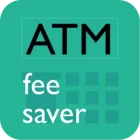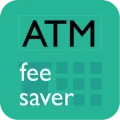Wondering how to pay for metro and bus rides in Lebanon - cash only, or do cards work too?
The public transport payment system in Lebanon feels stuck in the past. You mostly have to pay cash on buses, and while some drivers accept card top-up on the spot, it’s slow and chaotic. The driving and traffic make it hard to focus on payments anyway. If you rely on Visa or Mastercard for fares, you’re out of luck. ATMs like BLOM or Audi Bank are everywhere in Beirut for cash, so just load up before you travel.
I used buses in Beirut last summer and paid mostly with cash. There are cards like the Ora card, but it wasn’t accepted everywhere when I tried. Drivers usually expect exact fare since they don’t give change. I got cash from Byblos Bank ATMs downtown and kept small bills for fares. It’s a hustle sometimes, but people are used to it and helpful if you ask about fares.
Lebanon’s public transport is largely a cash-only system, so make sure you carry small bills or coins to pay bus drivers directly. While some bus services have started experimenting with reloadable cards, they’re not fully in place citywide. ATMs from banks like Byblos and BLOM are numerous around Beirut if you need quick cash. Paying with credit or debit cards on buses or metro isn’t reliable, so cash remains king here.
In Lebanon, most buses still require cash payment, though some bus companies have limited card payment options under trial. Generally, you pay the fare in Lebanese pounds or sometimes US dollars, and drivers expect exact change since they don’t always return change. Cards like Visa or Mastercard aren’t widely accepted on board yet. It’s best to prepare with cash, especially for routes in Beirut and surrounding areas.


